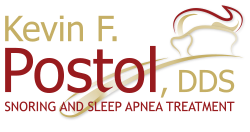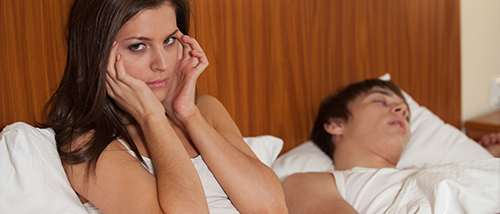• What to Expect When You Come to Our Office •
When you visit our office, a complete sleep history and examination of your neck and throat is taken and reviewed with you along with available referral information and sleep study results. We use this information to arrive at an accurate diagnosis and determine appropriate treatment options for your specific needs. If you have been referred by a physician, we coordinate your care between our offices to insure you are receiving the help you need.
We encourage all patients to take the time to join us in a review of their evaluation findings, an explanation of what they mean, what treatment options are available (including a review of risks and benefits of each) and to discuss any questions they may have so that they are active, informed participants in their health care choice. Moving forward, we work closely with each patient to custom fit the correct oral appliance for his or her needs and continue working with them to ensure their progress.
• Physician Evalution •
When you visit our office, a complete sleep history and examination of your neck and throat is taken and reviewed with you along with available referral information and sleep study results. We use this information to arrive at an accurate diagnosis and determine appropriate treatment options for your specific needs. If you have been referred by a physician, we coordinate your care between our offices to insure you are receiving the help you need.
• Frequently Asked Questions •
Q. Do I have to be referred by a physician?
While you do not have to be referred by a physician to be treated, oral appliance therapy is generally covered under medical insurance as opposed to dental insurance. If this is true in your case, a physician’s diagnosis of obstructive sleep apnea may be required for your claim to be processed.
Q.Why (How) does an oral appliance work?
When snoring or sleep apnea occurs because the airway becomes blocked by the tongue or soft palate, moving the jaw forward eases the flow of air and prevents the body from having to wake itself to restart breathing. An oral appliance is designed to move and hold the lower jaw sufficiently forward during sleep to keep the airway open. To use, the appliance is slipped on easily over your teeth like a retainer before going to sleep and upon awakening, it is slipped off the teeth, allowing the jaw to return to its normal position.
Q.Is it worth it to get an oral appliance if all I do is snore?
85% of snorers treated with oral appliance therapy experience a quieter, better night’s sleep.
Before we will fit you with an oral appliance, we recommend you try some simple alternatives if snoring is your only symptom.
- Change your sleeping position - if you sleep on your side instead of your back, there is less chance that gravity will play a role in your snoring.
- Avoid alcohol or drugs - enhanced relaxation can cause the tongue or soft palate to relax into the airway, narrowing the airway and contributing to snoring.
- Lose weight - excess weight shows up internally as well as externally - losing weight can reduce fat deposits around the airway and in turn increase the space for airflow.
- Stop smoking - aside from the widely known benefits of smoking cessation, irritants in smoke can create nasal and throat congestion.
- Take care of your allergies or cold - increased stuffiness in the throat or nose contribute to snoring.
- Get a physician’s opinion on the health of your tonsils and septum - enlarged tonsils crowd your throat and a deviated septum can impede the flow of air in your nose - either way you could be breathing easier with the right treatment.
Once these possibilities have been addressed, if you still snore, an appliance may help.
Q.How long will it take me to go from my first appointment to a good night’s sleep?
Once an appliance selection has been made and impressions taken, it takes about 3 weeks to get an appliance fabricated. You will then return to our office for a final fitting and adjustments, if needed, can be done right in our office. It differs for each patient, but many people find they can sleep well the first night; virtually all patients have acclimated and arrived at a comfortable jaw position within one week.
Q.How long will my appliance last?
Appliances can generally be expected to last up to 5 years, but often they last well beyond that.
Q.I’ve seen other inexpensive mouth-guard type appliances that are “boil and bite”. Isn’t that the same as what you are making for me?
There are some obvious differences - all of which should be very important to someone looking for relief from snoring or sleep apnea.
First, we have taken time to obtain considerable education and experience to treat snoring and sleep apnea. As a result, we know that there is no one appliance that can treat every mouth/jaw/muscle structure and still provide the best fit.
Perhaps more important, is the fact that by design, oral appliance therapy moves the jaw forward to keep the airway open. Maintaining the integrity of the tendons and muscles that keep the jaw in place require an understanding of physiology and specific patient baseline structure. Boil and bite style appliances can over-extend or unevenly advance jaw - either of which can, at the very least, cause pain or can possibly contribute to TMJ.
In addition, because the material is required to be flexible to accommodate at-home forming - it may cannot be counted upon to maintain bite impressions faithfully over any period of time.
Answers to the Quick Quiz
Which health issues have been linked to insufficient or inadequate sleep?
- Impaired Memory
- Impaired Functioning
- Depression
- Heart Disease
- Obesity
- Hypertension
- Depression
- Diabetes
- Slower Healing Process
- Cancer
Answer: All of the above and more. It is essential to your physical and emotional health to get sufficient sleep.
Please don't put off getting help if you suffer from snoring or sleep apnea. Schedule an appointment now, call 636-394-6044
Office Hours
Monday....................10:00am • 7:00pm
Tuesday....................9:00am • 6:00pm
Wednesday..............7:00am • 4:00pm
Thursday...................7:00am • 4:00pm
Friday........................Closed
Related Links:





